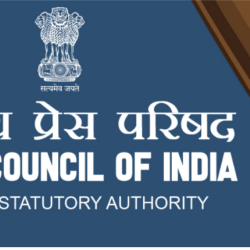Today is World Wildlife Day, designated so by the United Nations General Assembly on 20th December 2013, marking the day when the Convention on International Trade in Endangered Species of Wild Fauna and Flora (CITES) was adopted back in the year 1973. So, every year, March 3 is the day we humans have dedicated to celebrate the birds and animals that share this planet with us, the same creatures whose lives are largely endangered by the reckless pursuit of our development goals. With the world in the midst of a mass extinction event, with more than 24,000 species at the risk of extinction, the challenge for wildlife is clearly, is whether they can overcome the heat on survival.
In September 2016, Parties to CITES adopted a resolution on ‘Youth Engagement’, calling for greater engagement and empowerment of youth in conservation issues and decided to observe World Wildlife Day 2017 with the theme ‘Listen to the Young Voices.’ The aim is to encourage young people, as the future leaders and decision makers of the world, to act at both local and global levels to protect endangered wildlife. The survival of several iconic megafauna as well as lesser species that are vital to the natural ecosystems now depends on the future generations.
The earth has seen relatively stable climate for the last 10,000 years and all life forms have evolved to exist within certain temperature ranges. Abrupt rise in temperatures has made it impossible for wildlife to adapt to the change in their living environment; unlike the past periods of gradual change on Earth, fragmented and isolated wildlife habitats make it impossible for large scale natural migration. To estimate the effect of climate change on species, scientists use what they call a climatic envelope (sometimes also referred to as a bioclimatic envelope), which is the range of temperatures, rainfall and other climate-related parameters in which a species currently exists.
We live in the age of the Anthropocene, and it is now well established that human influence on the environment is already disrupting life on our planet, resulting in the extinction of about a quarter of all land species by the year 2050. Another report has claimed that the total number of wild animals are likely to decrease by two-thirds by the year 2020, in comparison to their numbers in 1970. Up to 50% of all amphibian species, which have been on Earth for over 250 million years and survived the extinction of the dinosaurs, could be lost this century.
The biodiversity of the oceans is also at great risk from climate change and marine vertebrate populations have declined by nearly fifty percent in the last four decades. The year 2016 was particularly bad for coral reefs around the world and warming ocean waters combined with an unusually long El Niño left a trail of dying and dead reefs.
Climate change is causing dramatic and significant impacts at the polar regions where the warming is accelerated by a combination of factors. The rapid reduction of krill populations, the primary food source for many marine species, is attributed to a combination of climate change and rise of UV radiation due to the depletion of the ozone layer. Warmer ocean temperatures and melting sea ice in the Arctic and Antarctic feeding grounds may jeopardize the ecology and migration pattern of many whale species. Marine mammals like the Polar Bear, Walrus, Bearded seal, and Ringed seal are especially vulnerable due to their reliance on sea ice. Antarctic species are dramatically impacted by alterations in the climatic conditions. Krill often feed on algae underneath sea ice and Antarctic krill populations have declined around the West Antarctic Peninsula with sea ice decrease.
Besides providing oxygen and sequestering carbon dioxide, planktons are the foundation for the entire oceanic food chain. In recent years, there has been a catastrophic collapse of phytoplankton and zooplankton populations due to warmer surface temperatures, ocean acidification, pollution and surprisingly, the rapid decline of whales. Whales are the primary species that fertilize the phytoplankton; one Blue Whale defecates three tons of nitrogen and iron-rich faeces a day, providing nutrients to the phytoplankton. In return the phytoplankton feed the zooplankton, the fishes and ultimately everything that lives in the sea.
Bees are the most important group of pollinators for farming and wild plants and the fertility of most flowering plants, including nearly all fruits and vegetables are dependent on them. But populations are declining due to a variety of factors including human development, pesticides, disease and a changing climate. Climate change is also affecting pollination by disrupting the synchronized timing of flower blooming and the timing at which bees pollinate. Flowers are blooming earlier in the growing season due to rising temperatures, before many bees have a chance at pollinating the plants Since 1992, when the landmark Convention on Biological Diversity was ratified, an additional 450 million hectares of nature habitat has been destroyed. Anthropogenic conversion of natural habitats is the greatest threat to biodiversity and one of the primary reasons for establishing protected areas. Yet, almost half of the world’s 800 Ecoregions, places with distinctive animal and plant communities are classified as very “high risk”, with destruction of the Ecoregion being 25 times greater in extent than existing protected areas. And 41 Ecoregions are in "crisis" -- losing habitat so rapidly that there is little left to protect.
Rising sea levels and salinization will also impact coastal mangroves and wetlands, home to numerous birds and animals. The Royal Bengal Tigers of the Sundarbans will be affected by the flooding of the mangroves; the lack of alternative suitable habitats for them to migrate make them especially vulnerable to climate change impacts. Other tiger habitats are vulnerable too; changes in rainfall pattern and decrease in soil moisture could increase tree mortality in the deciduous forest habitat and trigger a shift towards open tropical dry forests, which are considered to be less productive for tigers.
Precipitation changes could directly impact the habitat of other charismatic megafauna. The Indian One-horned Rhinoceros thrives in the grassland habitat sustained by abundant rainfall during the annual monsoons. Change in precipitation in the floodplains of Indian and Nepal could cause extreme flood or drought conditions when displaced rhinos are at a greater risk of being poached. Similarly, change in rainfall patterns and the availability of fodder could force Asiatic Elephants to stray, increasing conflict situations.
Scientists have described numerous examples of trophic cascades in marine and terrestrial ecosystems which demonstrates the consequences of taking out one species, for e.g., a mammal or a predator, from the food chain. In the long run the projected extinction of species will disrupt the web of life and create unforeseen challenges. New research has underscored the influence of humanity in transforming the planet, with scientists finding that over 50% of the world’s land area is now dominated by human activity, with 9% of this change happening in the last 25 years alone. Will we survive the current mass extinction and will we be celebrating World Wildlife Day in another half a century? The youth of today own the future and we will have to listen to the young voices to find the answer.
- 7090 reads










Add new comment